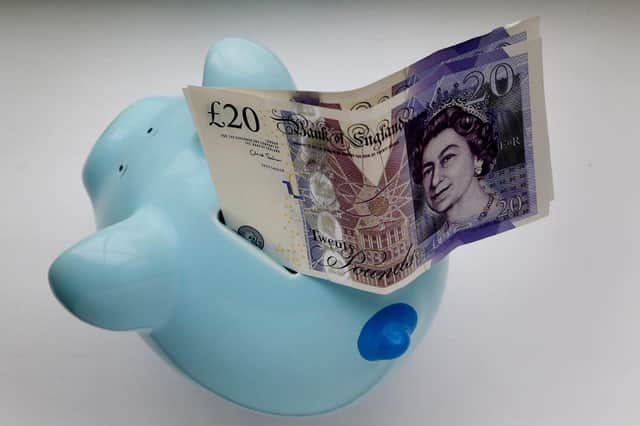Will my children be hit with inheritance tax? - Gareth Shaw


Gareth says…
It’s very sensible to be checking this kind of thing – not only are the rules around gifting and inheritance tax notoriously complicated, one mistake has the potential to leave your heirs with a bill. And with inheritance tax chargeable at 40%, that could mean a significant reduction in what your loved ones inherit.
If I make the assumption that the ‘we’ you refer to is you and your husband, then your building society has given you correct information, but it is important that you understand why.
Advertisement
Hide AdAdvertisement
Hide AdEach individual has an inheritance tax-free allowance, technically called the ‘nil-rate band’, that allows them to pass on a certain amount of assets without any liability for inheritance tax applied. This is currently £325,000, and has been at that level since 2010.
Married couples and civil partners can inherit their spouses assets completely free of tax. If, for example, your husband were to die, you would inherit all of his assets, no matter how much he had, free of inheritance tax. But you would also inherit any of his unused nil-rate band. If his full allowance was unused, you would be able to pass on £650,000 tax-free in total.
That’s not all. If your estate includes a property and this is being passed on to a ‘direct descendant – a child or grandchild – you get an additional allowance of £175,000 (called the residential nil-rate band). This means an individual can pass on a total of £500,000 and married couples can pass £1m tax free.
These are the foundations of the inheritance tax rules but there’s more to navigate when it comes to gifting.
Advertisement
Hide AdAdvertisement
Hide AdFirstly, you have something called an ‘annual exemption’, allowing you to give up to £3,000 per year while you’re alive. You can carry forward this exemption from one previous year, which means that if you gave no money away last year, you’d be able to gift £6,000 in a single year without having to worry about inheritance tax. Married couples, therefore, could give away £12,000 in a single year with no tax to pay.
You can also give funds towards weddings, gifts from income and an unlimited number of gifts under £250 (although these need to go to different people and can’t be given to the beneficiary of your annual exemption).
Would £12,000 be enough to give your son the financial support he needs? If you need to give more, we enter into the more complicated world of ‘potentially exempt transfers’.
These gifts are only free from inheritance tax if you survive seven years after giving the gift – the rule is in place to stop people giving all of their money away on their deathbed to avoid inheritance tax. If you die within seven years, the amount given away is applied to your £325,000 tax-free allowance. That means that if you gave a gift and died the next day, the recipient wouldn’t have to give 40% in tax, rather your tax-free allowance for the entirety of your estate would be reduced.
Advertisement
Hide AdAdvertisement
Hide AdThe longer you survive after giving the gift, the less tax is payable on that amount, should an inheritance tax bill arise (known as ‘taper relief'). If you die within the first three years, 40% tax is payable. Between three and four years, it’s 32%, four and five years, it’s 24%, five and six years it’s 16%, and six and seven years it’s 8%.
In your case, this shouldn’t be an issue. If, for example, you gave your son £100,000 and died soon after giving the gift, it would be deducted from your nil-rate band, reducing it to £225,000. Combined with your husband's £325,000, that leaves a combined tax-free allowance of £550,000, more than the value of your estate.
Gareth Shaw is the head of money at which.co.uk.
---
Support The Yorkshire Post and become a subscriber today.
Your subscription will help us to continue to bring quality news to the people of Yorkshire. In return, you'll see fewer ads on site, get free access to our app and receive exclusive members-only offers.
So, please - if you can - pay for our work. Just £5 per month is the starting point. If you think that which we are trying to achieve is worth more, you can pay us what you think we are worth. By doing so, you will be investing in something that is becoming increasingly rare. Independent journalism that cares less about right and left and more about right and wrong. Journalism you can trust.
Thank you
James Mitchinson